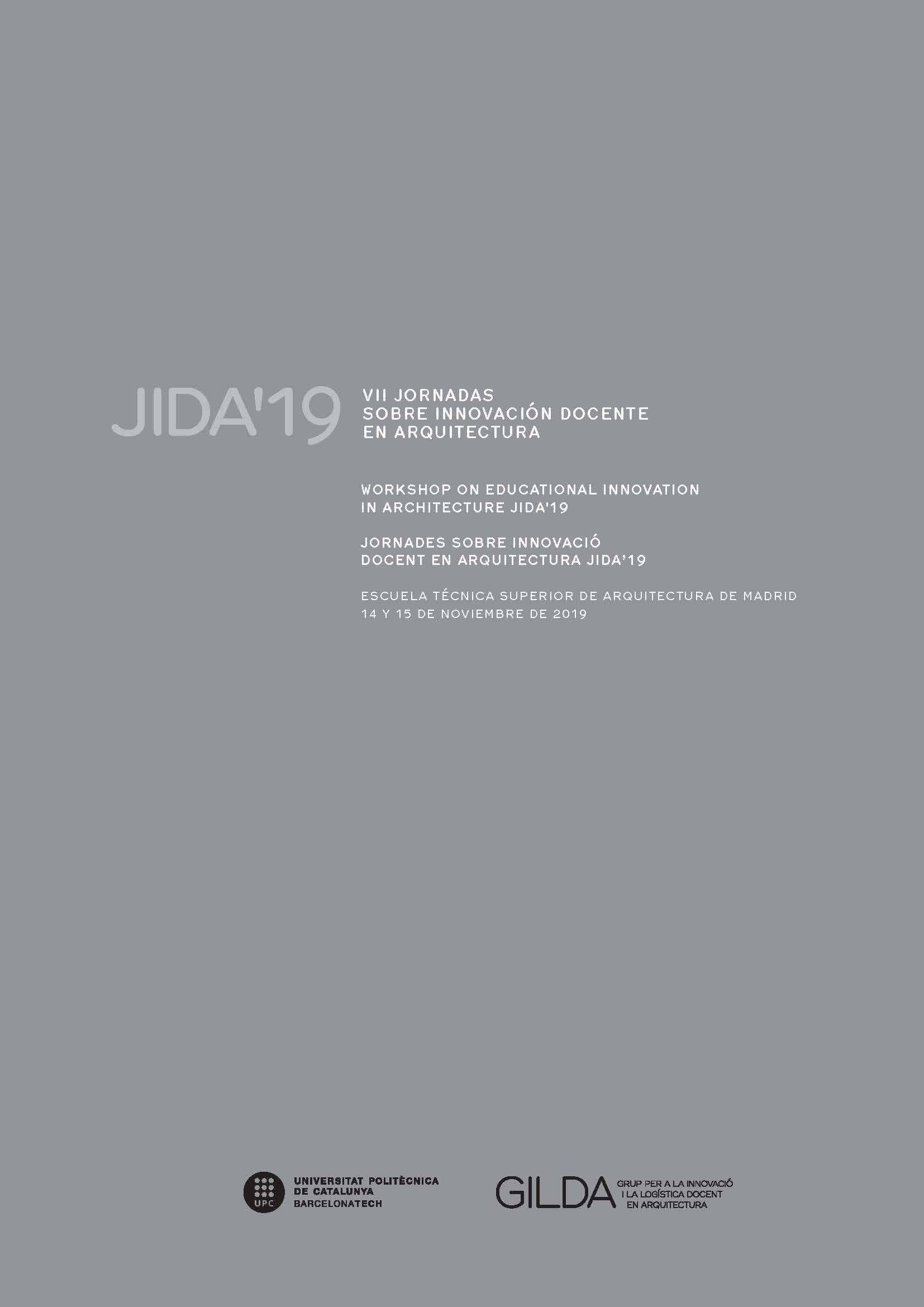Experimentation, Prototyping and Digital Technologies towards 1:1 in architectural education
DOI:
https://doi.org/10.5821/jida.2019.8381Abstract
Within education, and in relation to the physical-digital dialogue, we can observe the emergence of new tools, or tool sets, that facilitate experimentation in architectural education, among these, the Fab Lab movement, where 1:1 scale prototyping in construction become more accessible. The Institute for Advanced Architecture of Catalonia, considered the frontrunners in the integration of this mission within their architectural and construction based educational programs, bring materialising design to the centre of their educational methodology. Based on this, IAAC educational programs explore and produce a large series of experiments and prototypes, aiming to propose a different paradigm to the current productive system. This paper analyses series of projects co-developed by students, staff and industry collaborators with this aim. Through a design/build methodology the paper exhibits the importance of this approach to not only envision the future habitat of our society, but also to build it in the present.
References
CAPELLI, L. and GUALLART, V. (2010). Self Sufficient City: Envisioning the Habitat of the Future. Barcelona: Actar.
DIEZ-LADERA, T. (2017). Fab City Whitepaper. Locally Productive, globally connected self-sufficient cities. <https://fab.city/uploads/whitepaper.pdf> [Consulta: 31 de julio de 2019]
INSTITUTE FOR ADVANCED ARCHITECTURE OF CATALONIA. Digital Adobe Project. <http://www.iaacblog.com/life/nomad-folding-flax-pavilion-at-the-nowhere-festival-2017/> [Consulta: 31 de julio 2019]
INSTITUTE FOR ADVANCED ARCHITECTURE OF CATALONIA. Digital Urban Orchard - OTF 2015/16. <https://iaac.net/project/digital-urban-orchard-otf-201516/> [Consulta: 31 de julio 2019]
INSTITUTE FOR ADVANCED ARCHITECTURE OF CATALONIA. (2017). Iaac Nomad Folding Flax Pavilion at the Nowhere Festival 2017. <http://www.iaacblog.com/life/nomad-folding-flax-pavilion-at-the-nowhere-festival-2017/> [Consulta: 31 de julio 2019]
INSTITUTE FOR ADVANCED ARCHITECTURE OF CATALONIA. Institute for Advanced Architecture of Catalonia: mission, vision and values. <https://iaac.net/iaac/about/> [Consulta: 31 de julio de 2019]






















